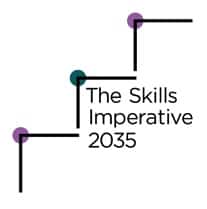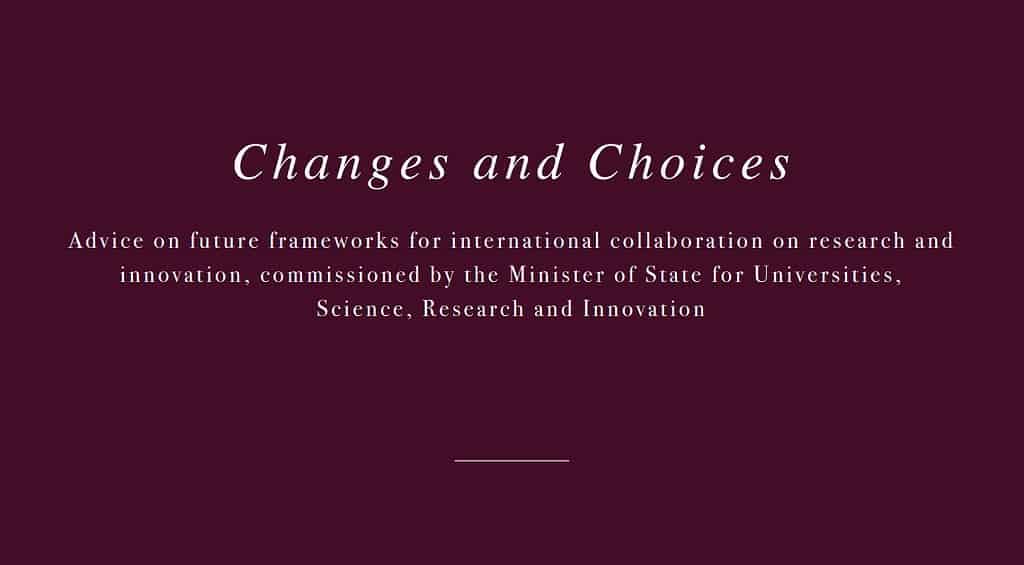Lisa Morrison Coulthard, Research Director at the National Foundation for Education Research, on the Nuffield Foundation funded five year research programme providing insights into the essential employment skills needed for the future workforce
Essential skills for tomorrow’s workforce
22 Mar 2022
The world of work is anticipated to undergo a significant transformation over the next decade and beyond. New technologies such as artificial intelligence (AI) and increased automation, as well as major demographic and environmental changes, are expected to have far reaching and long-lasting effects on the labour market.
These impacts are forecast to have a huge impact on the role of workers in the labour market in the next 10 to 15 years and beyond, both in terms of the jobs they do and the skills they need. Some commentators forecast that jobs such as production, sales, administrative, and other manual jobs are most likely to become automated (1,2), whereas managerial, professional and technical roles will increase in numbers (3,4). Skills such as creativity, critical thinking, team working, problem solving and resilience – skills which complement the new technologies and other changes taking place – are likely to become increasingly important.
Understanding future skills needs is essential
Understanding the types of skills needed most for work in the future, and how this demand will be met is essential. However, currently, the nature of this transformation and its implications for education, employers and the workforce is not well understood and so these evidence gaps need to be filled.
Without evidence-based long-term planning for an education that supports young people to develop the right skills, there is a real risk the current skills mismatch will be further exacerbated (5).
This may lead to under-employment and unemployment in future, along with enduring social and economic problems. The consideration of this longer term impact is essential. We need to look at how this may affect different groups because commentators suggest those most likely to be impacted will be the lower paid, the less educated, the vulnerable and young people (6,7).
New research and insights
The National Foundation for Educational Research (NFER) is leading a five-year strategic research programme, funded by the Nuffield Foundation, to increase understanding of the future skills needs. We are leading a multi-disciplinary team, working alongside co-investigators from the universities of Sheffield, Warwick and Roehampton, as well as with Cambridge Econometrics, Kantar, and the Learning and Work Institute.
This research aims to provide new insights into the future demand for and supply of employment skills most needed in future and also when new technologies and other effects are expected to start to transform the labour market. From this, we will aim to identify which employment skills will be most needed in future – which we refer to as essential employment skills. We will also seek to identify where the skills gaps are and which groups are most at risk of not having the skills needed. We will work with Government, employers, educators and others to develop strategies to help workers and young people to develop the right skills needed in the future labour market.
Identifying essential employment skills
As a first stage of our research programme, we have undertaken a review of the most relevant recent literature to see what it suggests about what the world of work will look like in 2035; which essential employment skills will be in demand; and how do we prepare to meet this demand? The review highlights that a number of areas will see growth – including natural and applied sciences, digital, information and communication, education and health and social care. Declining sectors include manufacturing, production, retail and administrative/secretarial.
The review of the literature identified a range of skills which will become more important in the face of technology. These include analytical/creative skills (such as problem solving, decision making, critical thinking, analysis and innovation/creativity), interpersonal skills, self management skills and emotional intelligence skills. Both the education system and the workplace play important roles in fostering these skills but more focus is needed on developing these essential employment skills.
What else will we be exploring?
We will examine further how the nature of jobs and future demand for skills may change as a result of greater adoption of new technologies and other factors affecting the labour market. This will provide us with new insight into which employment skills are most likely to be in demand from employers in the next 10-15 years.
We will also look at the supply-side, and assess whether there are likely to be sufficient numbers of workers in 2035 with the essential employment skills to meet future demand and model how possible labour market policies could impact on the availability of these skills. As an estimated two-thirds of the workers in the labour market of 2035 are already working, it is really important to understand where these supply gaps will fall.
The groups of workers who are most likely to be impacted by changes in demand for different employment skills will also be examined. Moreover, we need to understand what routes for potential occupational transitions could be most successfully used for those groups most likely to suffer as a result of the changes.
The extent to which current education provision in England supports the development of the essential employment skill set that will be needed in future and preparing young people who will be entering the labour market in the next 15 years will also be considered as part of this study. This includes the different pathways (including routes and qualifications) through which skill sets are developed for 16-18 year olds. Other factors (such as socio-economic background) which may impact on skill development will also be examined.
As part of gathering our evidence, we will also explore what other countries are doing to help their young people develop these essential employment skills. This will provide insight into potentially relevant policy and practice changes which could be implemented in the UK, especially when drawn from other countries with higher comparable skills levels.
Armed with the evidence generated by our programme of research – the nature of the challenge will be better understood and used to inform the planning and delivery of a future skills strategy designed to meet employment needs in the coming decades. With the right strategy implemented at the right time, people will work and flourish in their jobs, helping to secure a prosperous future for our economy and society.
We will be providing updates as the work progresses and engaging with a range of stakeholders to share our knowledge and insight as it emerges.
To keep up to date with the Skills Imperative 2035 programme and other research from NFER – sign up here.

The Skills Imperative 2035: Essential skills for tomorrow’s workforce
Skills Imperative 2035Related articles

The Physiological Society’s policy team on the health challenges facing older workers and the urgent need to develop a strategy to ensure older people are happy and healthy at work.

Jo Reynolds, Director of Science and Communities at the Royal Society of Chemistry, on the RSC’s new summary report looking to unlock the potential of deep tech SMEs.

Sir Adrian Smith, Institute Director and Chief Executive of The Alan Turing Institute, and Graeme Reid, Professor of Science and Research Policy at UCL, set out the findings from their new independent report on international partnership opportunities for UK research and innovation

Tanya Sheridan and Izzie Radford from the Royal Society of Chemistry on how their analysis demonstrates the intangible benefits of participating in EU framework programmes, as well as highlighting some of the great scientific research seeking to solve global challenges.